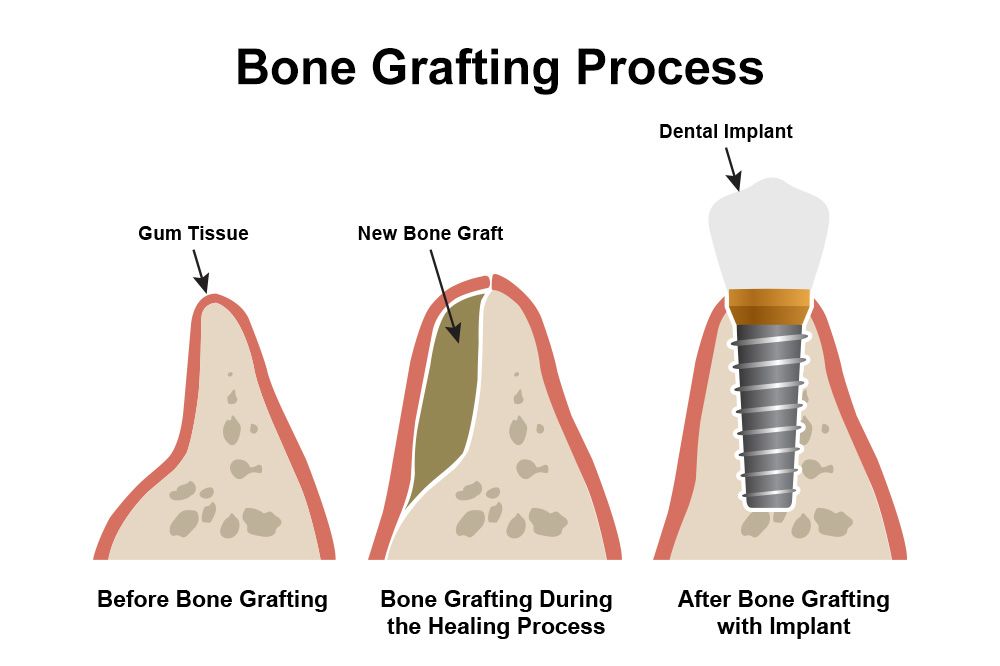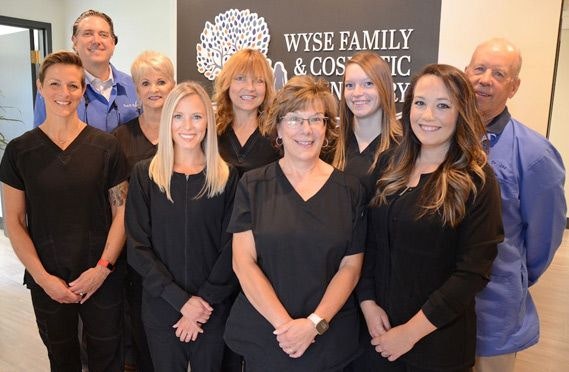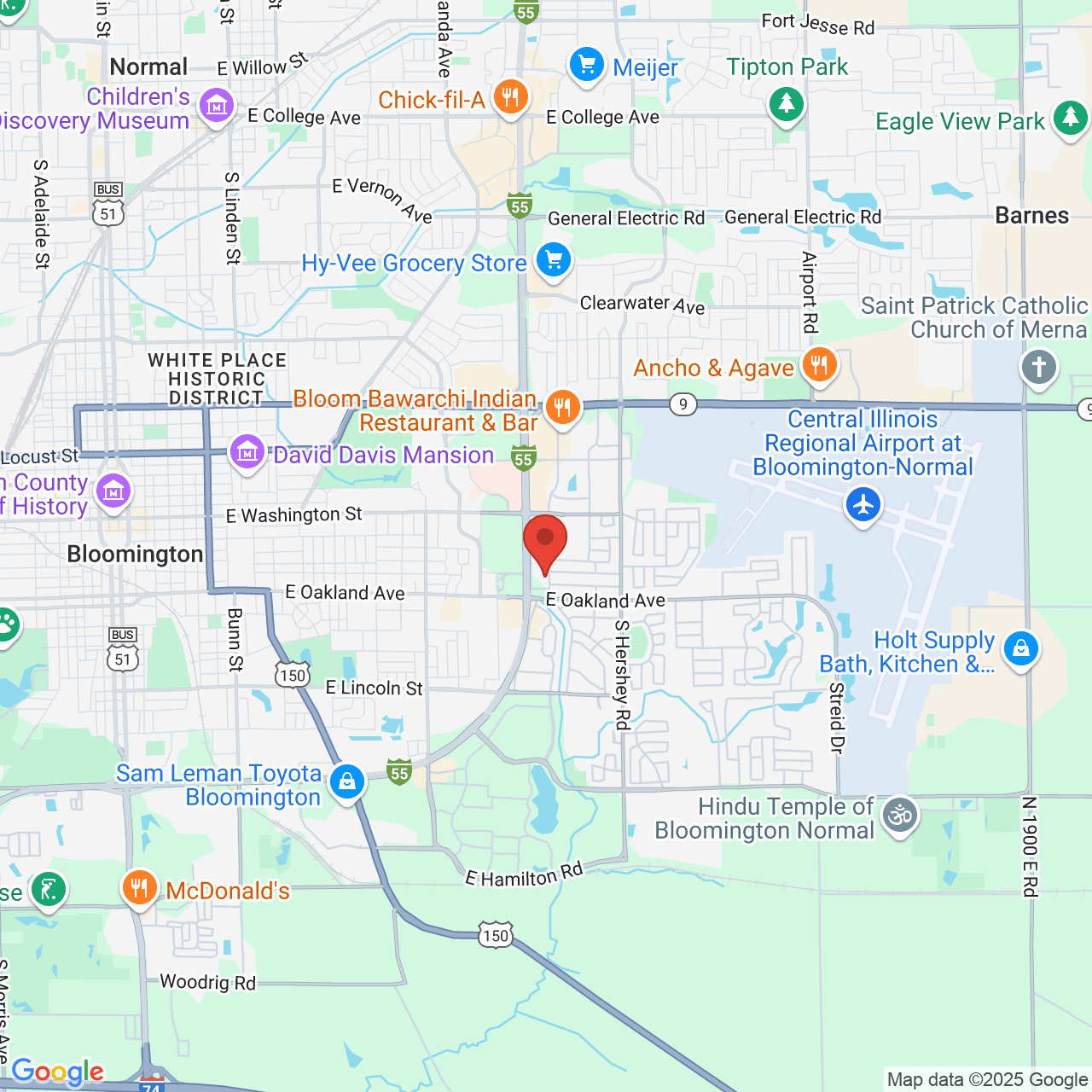Promote Candidacy for Dental Implants
If you wish to replace lost teeth with dental implants but lack adequate jawbone tissue to support them, you may be able to improve your candidacy through a bone grafting procedure. This restorative treatment uses donor bone tissue or grafting material to encourage new bone growth in the jaw. Drs. David Wyse and Jay Chrisman offer this procedure at their Bloomington, IL, office to enhance your candidacy for dental implants and improve your overall oral health.

Benefits of Bone Grafting
Injury, gum disease, and jawbone recession resulting from tooth loss can all contribute to low jawbone mass. By restoring jawbone density, patients can benefit from:
- Candidacy for dental implants: One of the most common barriers to receiving dental implants is inadequate jawbone density. By undergoing bone grafting, you can regain candidacy for this life-changing treatment.
- A fuller smile: Missing teeth and the resulting jawbone recession can lead to a “caved-in” smile that leaves you looking older. By replacing lost bone tissue, your smile will look fuller and more youthful.
- Improved oral health: Once you have recovered from surgery and received your dental implant, the new implant post will prevent further jawbone recession, which in turn reduces the risk of developing periodontal disease and other health problems.
- Protection following tooth extraction: Bone grafts can be performed immediately after tooth extraction to prevent recession.
- Comfort: While bone grafting may sound painful, our doctors employ oral sedation and anesthetics to ensure that you are comfortable before, during, and after your treatment.
Am I a Candidate for Bone Grafting?
Your candidacy will depend on several factors, including your current oral health, medical history, jawbone dimensions, and personal goals. Bone grafting is often recommended to patients who are:
- Missing teeth
- Experiencing recent trauma to the jaw area
- Preparing for a dental implant
- About to have a tooth extracted
- Recently treated for advanced gum disease
Smoking, advanced gum disease, and certain medications can delay your candidacy for bone grafting.
Injury, gum disease, and jawbone recession that results from tooth loss are all common risk factors for low jawbone mass.
Bone Grafting Procedure
Your doctor will work to ensure that you are comfortable throughout your procedure. After applying a local anesthetic, a small incision will be made in your gums. Bone tissue or grafting material will be placed in the area that has low bone density. Then, your incision will be closed using sutures.
In the days following the placement of your bone graft, you should:
- Avoid vigorously rinsing
- Avoid touching the surgical site
- Rest often
- Take medications as recommended
- Use ice to reduce swelling
It usually takes about three months for patients to fully heal, at which time the doctor can determine whether the procedure was successful.
Call Our Clinic Today
If you need to undergo bone grafting, you can be confident that our doctors will provide a service that focuses on personalized care in an atmosphere of kindness, comfort, and respect. Our doctors employ the latest dental technology, including digital x-rays, intraoral cameras, and the iTero™ digital impressions scanner, to ensure the greatest degree of accuracy possible. If you would like to learn more about the benefits of bone grafting, contact our office online or call (309) 663-6393.



